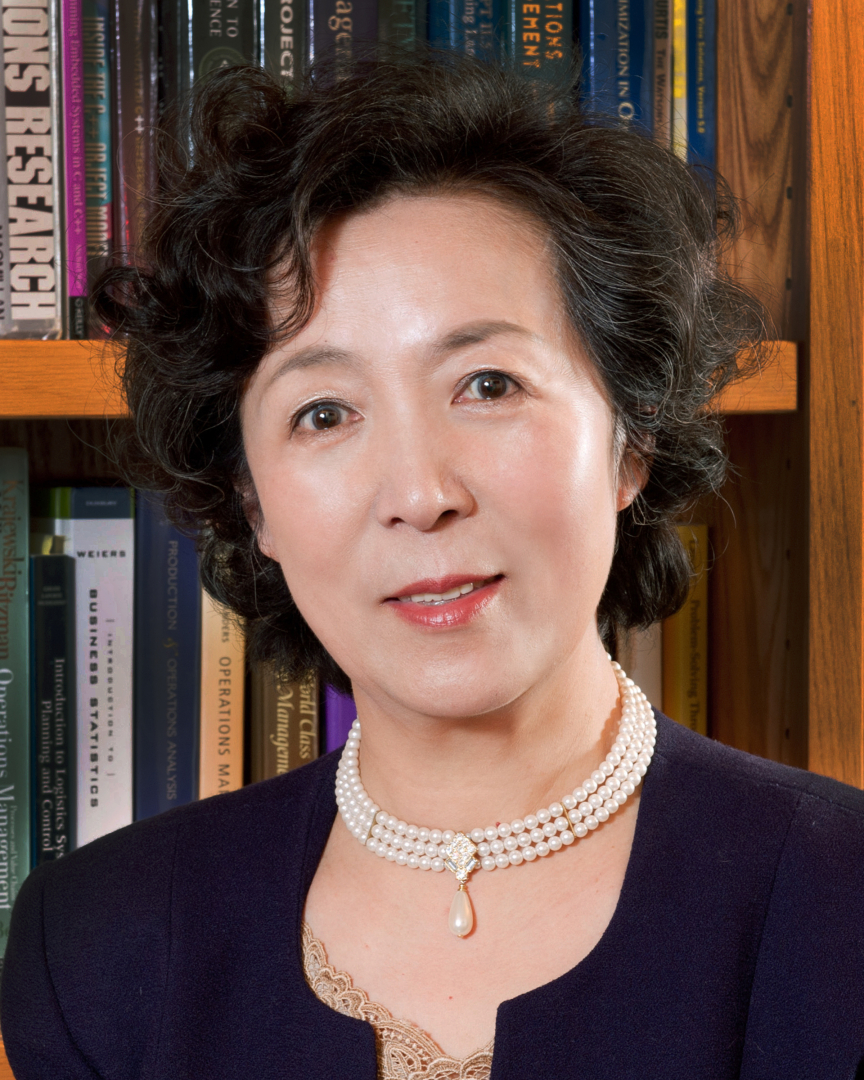At Rutgers, S-C-M Spells J-O-B-S
Rutgers Business School is one of the nation's leading schools preparing MBA students for jobs in the hot field of supply chain management

'Supply chain management is part of every company. That's why there are lots of opportunities for our students to get jobs.'– Lei Lei, professor and chair, Rutgers Business School's Department of Supply Chain Management & Marketing Sciences
Miryam Shapiro thought that after college, she was on the path to a long retail career. But after four years at Sears and Bed Bath and Beyond, she realized that sales and merchandising work didn’t fit her personality.
“I found that I cared more about the operations side of the business, ensuring things run smoothly, that we are set up for success and that processes are efficient,” said Shapiro, who earned a bachelor’s degree in business management at Rutgers University-New Brunswick.
Shapiro decided to pursue an MBA at Rutgers Business School-Newark and New Brunswick, focusing on supply chain management, after noticing the school’s outstanding Gartner ranking, the standard used by the supply chain industry, and the strong rate at which Rutgers MBAs receive job offers.
Supply chain management – which involves the countless steps to manufacture and distribute a product or service – has become a hot field as it continues to snap up newly minted MBAs. Shapiro is now a supply chain manager for the worldwide tablet team at Dell in Austin, Texas, one of 11 Rutgers MBA graduates hired by the company.
Two years ago, Inc. Magazine predicted 9 percent annual global growth for supply chain management over five years. In many corporations, supply chain management is considered a function of three supply chains – cash, product and information flows – that have become increasingly sophisticated as the global economy intensifies competition, often convincing companies to outsource significant pieces of the supply chain to enhance efficiency.
“Supply chain management is part of every company. That’s why there are lots of opportunities for our students to get jobs,” noted Lei Lei, professor and chair of the Rutgers Business School’s Department of Supply Chain Management & Marketing Sciences, ranked No. 3 nationally by Gartner, Inc. (2011).
Internships Lead to Jobs
Rutgers’ supply chain MBA candidates complement their classroom learning with significant real world experience. Many of the program’s 135 affiliated companies offer them actual work projects. Typically, all 62 full-time students earn summer internships – most lead to job offers – and by graduation 75 percent have permanent positions.

As a result of the program’s growing reputation and student successes, Lei recently led a faculty team to teach supply chain management skills at the Chinese government’s Executive Leadership Academy, about an hour from Beijing, near where she was raised.
Shapiro, 30, born in Israel and raised primarily in Fair Lawn, was attracted to Rutgers by its industry ties but believes exposure to others’ viewpoints is one of the many benefits the program encourages.
“The most powerful classroom learning for me came from hearing everyone’s experiences – how they applied the materials we were studying to work in their previous careers,” said Shapiro, who completed her MBA in 2013. “It’s a very collaborative environment.”
Another 2013 MBA, Julie Oka, was drawn to Rutgers’ supply chain by the pharmaceutical firms included among the program’s sponsors. Prior to Rutgers, Oka conducted clinical biochemistry research at Columbia University after earning a bachelor’s degree in chemistry and computer science from New York University. She was recently promoted from associate to senior associate after one year at Pfizer and now supports global product pricing and U.S. trade.
En route to completing her MBA, Oka and classmate Christopher Parker founded the Rutgers Business School Biopharmaceutical Case Competition for the country’s leading MBA programs, now going strong in its third year with major corporate support.
“We knew the Rutgers brand was huge in supply chain management,” said Oka, 27. “But we wanted to strengthen the reputation even more, so that everyone nationwide knows about it.”
Faculty Plays Vital Roles
Oka lauded the attention given to students by business-savvy Rutgers faculty, noting how Professor Don Klock’s mentoring was vital to her landing at Pfizer. Klock was recently honored with the “Lifetime Achievement Award” from the Procurement Leaders Global Awards, only the second such award ever presented.
New Jersey companies are among the beneficiaries of Rutgers’ supply chain talent pool. Hundreds of small- to medium-sized Newark-area businesses today can consult with students on any supply chain issue, the result of a resource center established by Kevin Lyons, an associate professor. Further, the school participates in the New Jersey Manufacturing Extension Program to assist 11,000 manufacturers statewide.
Undergraduates considering a supply chain career path also have benefitted from the addition of a supply chain management major, which Rutgers Business School added three years ago based on global business trends. The new major has grown to 600 students and ranks No. 2 nationally, according to Gartner’s 2011 Survey Report.
“Supply chain leaders are now getting a seat at strategy meetings and are expected to report to the CEO,” said Lei. “We understand very well how important a sustainable talent pipeline is to industry, and we are striving to develop graduates with the skill set to become dynamic knowledge leaders in supply management.”